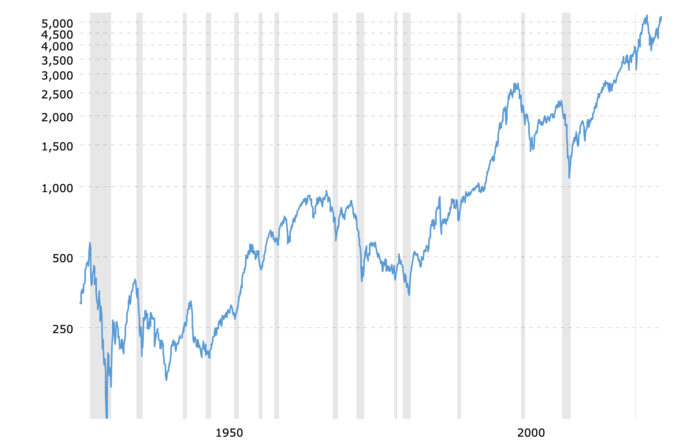
Everyone is investing.
Some people say, “I am not investing.”
That is a misconception.
The moment you own assets, you are investing in something.
Let’s say you have deposited $1,000 in cash.
If the interest rate is 1%, your cash will grow by 1%.
If the inflation rate is 2%, prices will become 2% more expensive.
As a result, you will no longer be able to buy the goods you could with $1,000.
Moreover, since the Federal Reserve aims for a 2% inflation rate, it is wise to assume that prices will generally rise by 2%.
reference: Why does the Federal Reserve aim for inflation of 2 percent over the longer run?
In other words, a deposit is an investment in the currency.
Cash deposits are a prime example of principal-guaranteed investments, but they are not risk-free.
If cash deposits are considered investments, then it is more rational to invest in stocks with decades of history.
Over the long term, looking at a 90-year history, U.S. stocks have been on the rise.

You don’t need to put all your assets into stocks right away.
How about starting with a $500 investment using surplus funds?
I also started investing with a few hundred dollars.
By gradually buying stocks and gaining experience over a few months to a year, you will naturally get used to it.
Why not get used to it little by little?




